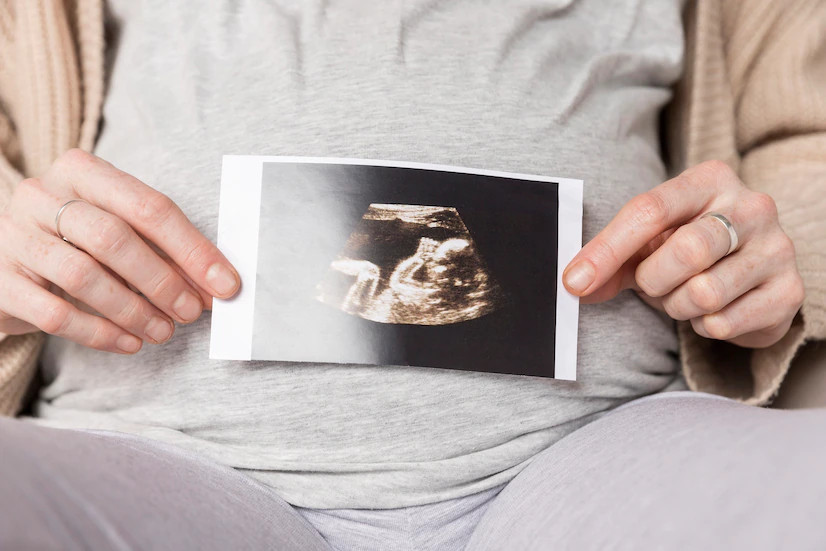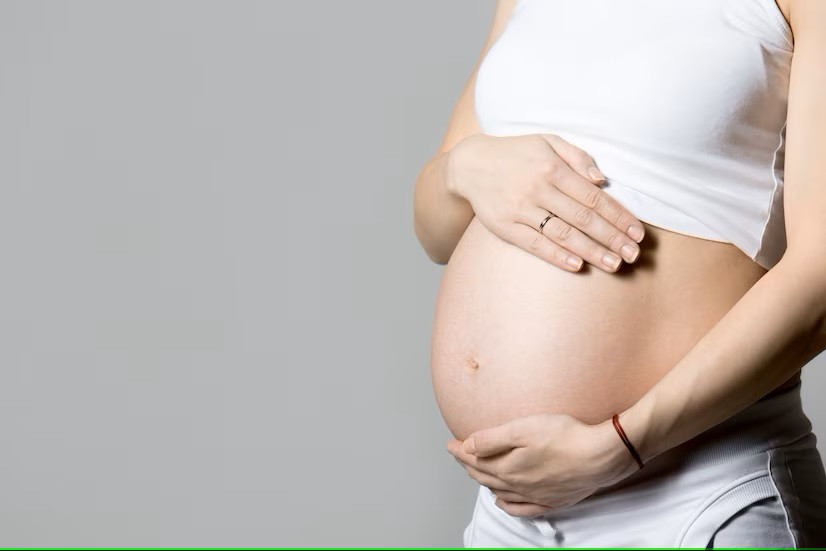The news of a pregnancy is the most eagerly anticipated announcement for married couples. This happy news leads expectant parents to speculate about the baby's gender. Many people believe that the gender of the baby can be predicted based on the mother's complaints and physical characteristics. Is this true?
Signs of expecting a baby girl
In modern society, various myths have emerged about predicting a fetus's gender by observing the physical changes in pregnant women. However, these beliefs lack full support from medical evidence. For those curious about signs that might indicate expecting a baby girl, here is an overview:
Higher belly shape
The common belief is that a pregnant woman with a higher belly shape is expecting a girl. However, experts emphasize that the shape of the belly during pregnancy is influenced by factors like the condition of abdominal muscles, body shape, and weight gain rather than the baby's gender. A higher belly shape can also occur in pregnant women carrying a boy or twins.
Increased heart rate
It is believed that an increased heart rate in a pregnant woman indicates she is carrying a girl. While females generally have faster heartbeats than males, this difference occurs after birth. During pregnancy, a mother's heart rate can increase due to activity and other medical conditions, not because of the baby's gender.
Pregnancy is a period in which the body undergoes significant changes. As a result of these changes, pregnant women often experience fatigue and physical discomfort.
In addition to getting enough sleep, light exercise can also help relieve muscle tension and make the body feel fresher during pregnancy. One recommended form of light exercise is walking.
Oily and acne-prone skin
Some believe that pregnant women carrying a girl will enjoy a more radiant and beautiful complexion, often called the "pregnancy glow."
However, there's also a common belief that women expecting baby girls may experience oily and acne-prone skin.
Both of these beliefs are not entirely accurate, as experts explain that the changes in skin during pregnancy are primarily due to hormonal fluctuations.
Severe morning sickness
A study suggests that women pregnant with a girl are more susceptible to inflammation and bacterial infections compared to those pregnant with a boy. As a result, women carrying a female fetus tend to experience more severe morning sickness.
Several studies have said that morning sickness is caused by hormonal changes and is not influenced by the baby's gender. If a pregnant woman experiences severe morning sickness, it is advisable to consult a doctor.
Severe mood swings
In addition to morning sickness, pregnant women experience severe mood swings and are often thought to be carrying a girl.
However, experts argue that mood swings can occur in pregnancies regardless of the baby's gender; it's not exclusive to female fetuses but due to a higher level of estrogen hormone, leading to more extreme mood swings.
There are many myths surrounding signs of whether the baby is a girl or boy during pregnancy. However, the most accurate way to determine the baby's gender is through an ultrasound examination. Typically, the baby's gender can be seen at about 20 weeks of pregnancy.
If you need medical advice or consultation, you can either visit a doctor or make use of the consultation features that are available in the Ai Care application by downloading the Ai Care application from the App Store or Play Store.
Looking for more information about pregnancy, breastfeeding, and the health of women and children? Click here!
- dr Nadia Opmalina
Timmons, J. (2018). Myths vs. Facts: Signs You’re Having a Baby Girl. Available from: https://www.healthline.com/health/pregnancy/signs-of-having-baby-girl
Burgess, L. (2020). What are the signs of having a girl?. Available from: https://www.medicalnewstoday.com/articles/322368#eight-signs-of-having-a-girl
Williams, S. (2022). 8 Scientific Signs That You're Having a Boy or a Girl. Available from: https://www.whattoexpect.com/pregnancy/predicting-sex-of-baby












